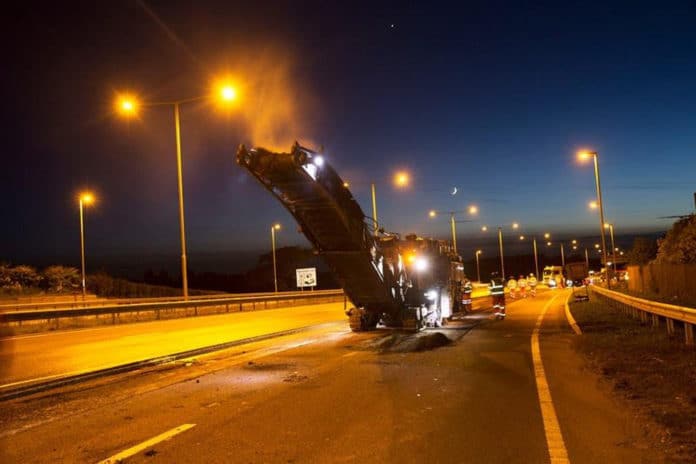National Highways will be trialing the use of graphene in its road surfacing project on the A1 in Northumberland this month. In what is being dubbed as the “world-first” project, the government-owned company, formerly Highways England, is turning to graphene – a material only one atom thick – to see if it prolongs the road’s lifespan.
Made up of a single sheet of carbon atoms arranged in a honeycomb pattern, graphene is an incredibly strong, conductive, and flexible material. It can be used in a wide range of applications, from aerospace engineering to digital electronics, seawater desalination, and biomedicine. By incorporating it into materials like asphalt, scientists hope to develop road surfaces that last far longer, and therefore cost less to maintain.
During the trials, National Highways will be adding graphene to the recycled asphalt on site. The authority plans to scrape up the existing asphalt from the A1, add raw graphene on-site, and then re-lay the resulting recycled mix.
“Laboratory trials have been a success, and the on-site trials in Northumberland will be a world-first use of graphene in road production, which enforces our commitment to innovation and helps to push the industry towards more carbon-friendly maintenance with longer-lasting solutions which we all benefit from,” said Graeme Watt, National Highways Asset Needs Manager.
“Graphene’s benefits are industry-changing. It’s stronger than steel, and adding it to other materials can turn them into super materials. From what we’ve seen so far, it could make some of our assets last significantly longer.“
The resurfacing trial will take place along 5km (3 miles) of the northbound carriageway between Newton on the Moor and West Cawledge, south of Alnwick, from 19 September to 1 November. National Highways is carrying out the trials with the Graphene Engineering Innovation Centre (GEIC) at The University of Manchester and Pavement Testing Services (PTS).
If successful, using this high-tech product could extend the life of road surfaces, reducing the frequency of roadworks and making journeys for road users smoother and more reliable.
